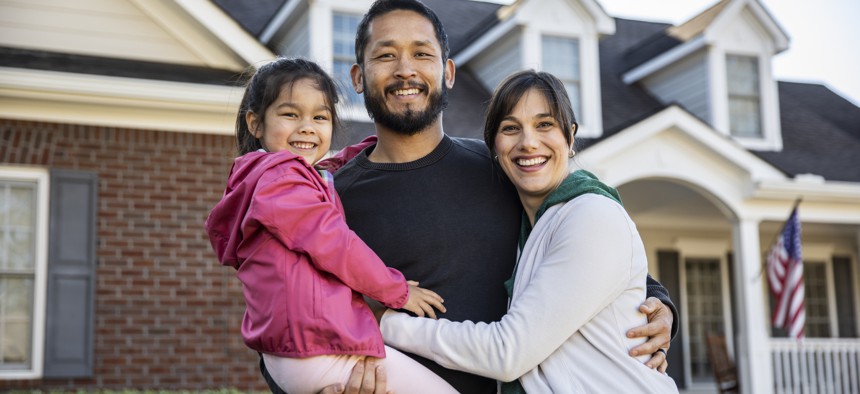How the Pandemic Changed Where Americans Want to Live

GeTTYIMAGES/ MoMo Productions
Many moved out of cities. But a leading priority people look for in their communities remains the same, according to a new survey.
The pandemic has influenced where Americans want to live, although the top priority for parents—a "good place" to raise children—remains unchanged, according to a new survey by the Pew Research Center.
About one-in-five U.S. adults surveyed in late 2021 said they prefer living in a city, compared with one-quarter in 2018. In addition, the share of Americans who want to live in the suburbs increased slightly—from 42% to 46%—during the past three years.
A quarter of adults surveyed by Pew say they moved since the coronavirus outbreak began, including 6% who relocated specifically because of the pandemic. But many did not relocate closer to family members; that number remained unchanged from 2018 to 2021.
Overall, the attributes residents desire in a community haven't changed much. The share of adults who say it’s very important to live in a place with a strong sense of community was 27% in 2018 and 32% in late 2021. This was especially true for people living in urban and rural areas.
While the pandemic has influenced where people live, it hasn't changed their views about what attributes they want in a community. Living in a place considered good to raise children remains No. 1. Other key factors include living near family; living in a community with access to art, music and theater; and being in a place that is racially and ethnically diverse or where most residents share the same political views.
A Bit of Dissatisfaction
Nevertheless, the share of Americans surveyed by the Pew Research Center who said they are satisfied with the quality of life in their community dropped slightly. About three-quarters of adults said they are at least somewhat satisfied and 24% said they are very satisfied, compared with 79% and 27%, respectively, in 2018.
Meanwhile, more than one-third of adults said it will take more than two years for their local community to "return to how it was before the coronavirus outbreak," or that their locale will never be the same, including 14% who think the economy “will never come back.”
The Pew survey of 9,676 U.S. adults was conducted Oct. 18 to 24 and dives into other topics related to Covid-19, including mask mandates, vaccines and affordable housing.
For more information from the Pew report click here.
Jean Dimeo is managing editor for Route Fifty.
NEXT STORY: Why Expanding Amtrak Service to More States Could be Tough





